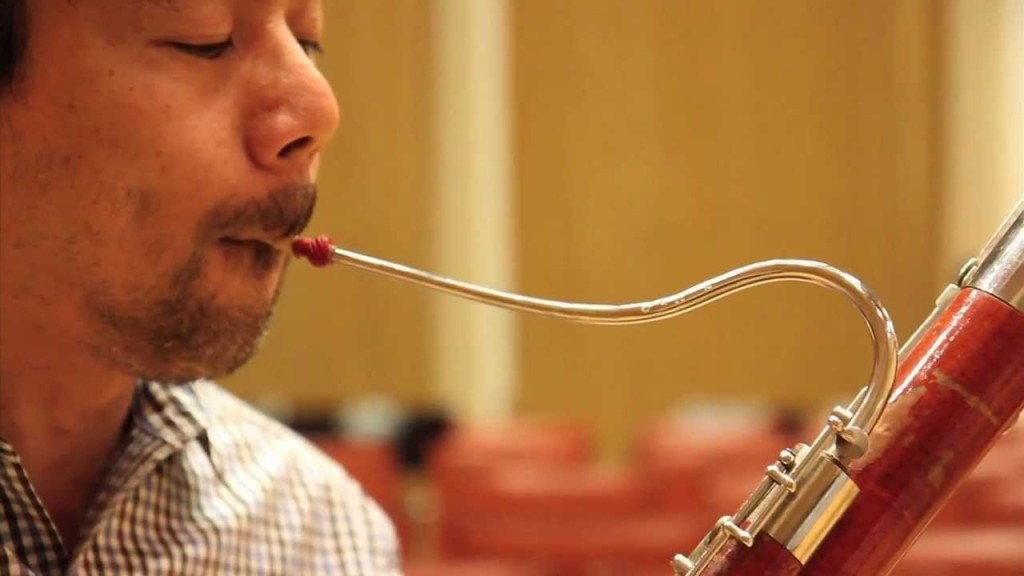
On Tuesday evening, October 17, 2017 Philadelphia Orchestra principal bassoonist Daniel Matsukawa was featured in a chamber music program presented by the Philadelphia Chamber Music Society and the Musical Fund Society of Philadelphia (now that’s a lot of Philly!) The house was totally full and in highest spirits at the Ben Franklin Hall of the American Philosophical Society on Chestnut Street. “Danny” was joined by three Philly Orchestra colleagues, violinist Juliette Kang, violist Burchard Tang, and ‘cellist Yumi Kendall, and also by a Curtis guitar student, the slight and intensely musical Hao Yang, who already boasts an international reputation.
The fairly long program was preponderantly drawn from the classical/late classical period with quartets for bassoon and strings by Devienne, Danzi, and Weber, the last a highly effective transcription by Mordechai Rechtman of the Weber’s Andante and Hungarian Rondo. There was a premiere by Curtis faculty composer David Ludwig, his Three Pictures from the Floating World, a reworking of sections of his bassoon concerto with additional new music; the Philadelphia Orchestra and Matsukawa had premiered the concerto, written for him in 2014.
To this listener the program’s highlights were two pieces from Astor Piazzolla’s 1986 composition Histoire du Tango performed by Matzukawa and Hao Yang. Originally for flute and guitar and subsequently performed by various pairs of instruments, the Cafe and Nightclub movements sounded wonderful on Danny’s instrument, an almost brand new Heckel bassoon from Germany. Of course the main factor was the player- as a bassoonist myself I really believe there are very few players in the world who could have drawn so much poetry and expression from this Piazzolla music, along with the sensitive guitar playing of Hao Yang.
The very high register of the bassoon can sound awkward and pinched, but in the hands of Matsukawa it was full-throated, intensely colored, and with the dramatic impact of an operatic diva. Composer Ludwig also exploited this register to great effect, while the classical composers on the program, as suggested by the proclivities of the bassoon of their period, stressed the middle portion of the bassoon’s compass. The exception was von Weber, who did write up to high C, while not remaining there for long. His Andante and Rondo requires intense lyricism, silly humor, and racetrack speed, all delivered in abundance by Danny Matsukawa.
We bassoonists are not really accustomed to people shouting and carrying on, no matter how well we play, but Danny got ’em going- a great night for him, and for the bassoon!
[American Philosophical Society] October 17, 2017; pcmsconcerts.org
